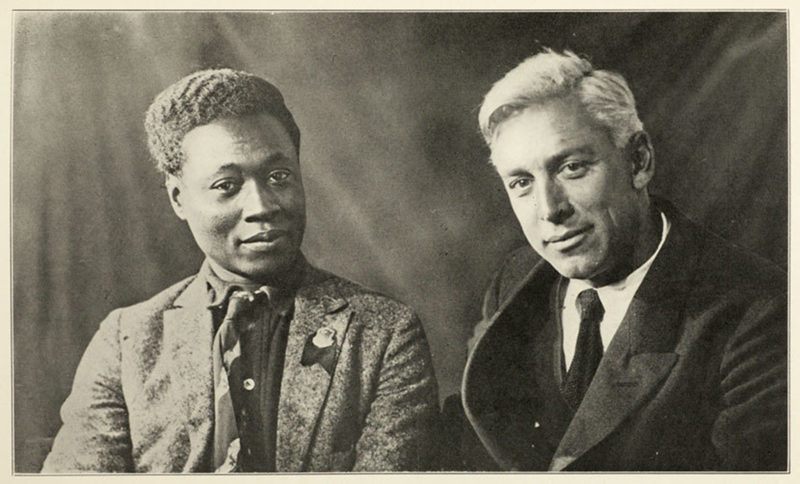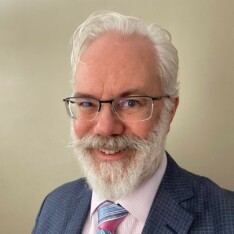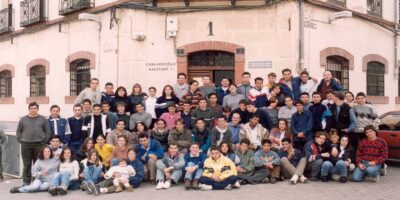Max Forrester Eastman: The Gangster of the Pen

Max Forrester Eastman (January 4, 1883 – March 25, 1969) is a name unfamiliar to most people today. Despite having been a prolific writer and journalist, almost his entire body of work is out of print. In particular his mid to late career works are hardly referenced or mentioned in popular culture and media. I have a particular interest in seeing that change. I’d like to introduce to a new audience, and perhaps those already familiar with his legacy, a bit of my distant family history.
Max Eastman has the distinction of being the only American writer to be personally singled out by Joseph Stalin. He was branded a “notorious crook” and the “gangster of the pen” for publishing Vladimir Lenin’s testimony and warning about Stalin’s ambitions. This became a turning point that soon had Eastman losing favor in his circle of acquaintances and friends: socialists, communists, and American leftists of that era.
Eastman had been recognized by many in America and abroad as a brilliant activist, dedicated socialist, journalist, key figure, and leading radical during the Harlem Renaissance in Greenwich Village, NY. During that time he was a youthful, exuberant, and zealous fighter for justice and equality against a capitalist system viewed by his peers as destined to be replaced via imminent revolution. He quickly became an influential and sought after voice of the people.
Together with his sister Crystal Eastman, one of the co-founders of the ACLU and leader in the fight for women’s suffrage, they co-founded and co-edited the radical arts and activist politics magazine The Liberator. It was this endeavor, along with his first wife Ida Ruah whom Eastman credits as introducing him to socialism, that led him toward a grand journey bringing him to witness first-hand the end of the Bolshevik Revolution in Russia, the establishment of the Soviet Union, and the struggle for power between Leon Trotsky and Stalin.
Seeing this struggle for power eventually brought Eastman to question his personal dedication to the ideals of Marxism, communism, and eventually socialism in general. It was this new realization, along with his knowledge of the Russian language, his translations of Lenin and Trotsky’s writings, and a deep understanding of the history of German philosophy that gave him a new perspective.
The perspective Eastman began to explore and publish was a detailed explanation that socialism, passed off as a social science, is in fact a disguised religious belief. Eastman revealed evidence of spiritual and animist elements in Marxism that, despite Karl Marx and others’ attempts to remove and erase those elements, are undeniably present throughout socialist ideology. From Marxism, Is it Science?, Eastman says:
Marx devoted “his life to proving that this mysteriously un-analyzable object, social life, or society, is destined by the inner law of its being to contradict itself (the class struggle) and resolve the contradiction in a higher unity (the co-operative commonwealth). He thinks that by committing himself to this one mystical belief, and joining in the struggle of this supernaturally practical entity toward its dialectically determined goal, he can avoid all mysteries and be a purely rational matter-of-fact mind.”
Eastman continues:
“In Das Kapital, as in The Holy Family, the force which guarantees the evolution of capitalism to the point of rupture, and the creation of a communist state, is that same logical necessity of ascending from the lower to the higher which Hegel laid on the whole Universe in the name of God.”
He was able to show that Marx and Engels had attempted to create a new scientific process free of the animism and priesthood of the Hegelian dialectic, but ultimately re-introduced a faith in the Universal mind/material that can still be witnessed today in the wishful and magical thinking of people all over the former and current Communist bloc.
This type of social science, steeped in the supernatural, universal, and inevitable movement of history has been taught in American universities for generations. Is it any surprise that we are currently experiencing a national, even a global revival of Marxism, socialism, and that secular, animist religion Eastman warned us about?
Eastman recognized the ways in which the socialist system is organized and how the concepts of fate, destiny, magical thinking, and ultimately tyranny play their parts in moving the plan forward:
“The Marxist method is to accentuate the class struggle between workers and capitalists, organize it both nationally and internationally, and carry it forward…in full consciousness of the ruthfulness of the forces at play, to the goal of a revolutionary dictatorship of the proletariat. Such a dictatorship could actually expropriate the owners of the land and the instruments of labor, and reduce them to the position of equal participators in the social process of production. That fundamental step having been taken, human society would begin to move, Marx thought, in the direction of freedom, political sincerity, international peace, and an opportunity of life for every member of it…”
Eastman continued to lose his allegiance to Marxism and the socialist program shortly after the Great Depression. He continued to publish many books on the Soviet experiment as he had experienced and observed it. In 1955 he published Reflections on the Failure of Socialism which became one of his most popular personal accounts:
“A false and undeliberated conception of what man is lies at the bottom, I think, of the whole bubble-castle of socialist theory. Although few seem to realize it, Marxism rests on the romantic notion of Rousseau that nature endows men with the qualities necessary to be a free, equal, fraternal, family-like living together, and our sole problem is to fix up the external conditions. All Marx did about this with his dialectical philosophy was to change the tenses in the romance: Nature will endow men with the qualities as soon as the conditions are fixed up.”
His later works have been effectively hidden away from popular culture and narratives since his betrayal of the Marxist faith. We should seek out and benefit from his experiences in the October Revolution and the events that led us into the Cold War. Marxists still continue to look to his early writings for inspiration. My hope is to ignite the same spark among individualists and free-market thinkers looking for inspiration and insight.
It is rare to see someone like Max Eastman, with such devotion and dedication to a vision, reversing deeply held views when confronted with new facts and information. He managed to reevaluate his socialist and utopian ideals with a wiser and more mindful approach, tempered by experience and a profound, first-hand knowledge of the historical, philosophical, and practical realities of life. One can sense his recognition and reflection of his former self in certain passages from his later writings:
“The struggle is still for freedom; the main facts are still economic; the arch-enemy is still the soft-headed idealist who refuses to face facts.”
In many ways the trajectory of my own life mirrors that of Eastman, my 6th cousin, thrice removed. Although my life has not been as dramatic, influential, or radical as his, we both experienced two very distinct and similar periods in our lives. I am grateful for the opportunity to reflect on and research a small portion of his life and get closer to a part of my heritage and family history.










